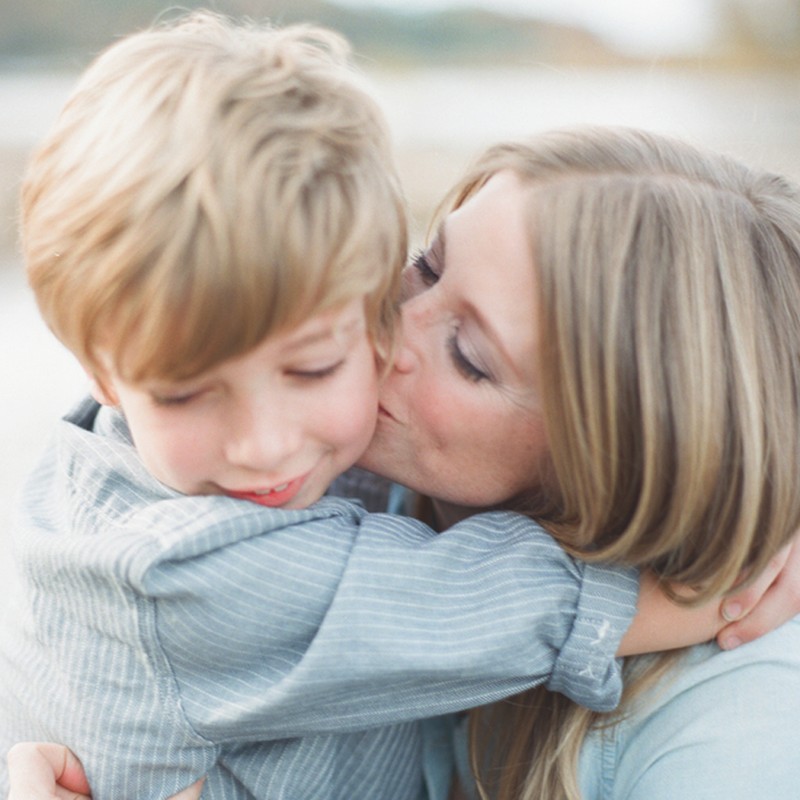Is Having A Favourite Child Ever OK?
Having a favourite child is considered a taboo subject for most parents – but that doesn’t stop them having one. Research published in the Journal of Family Psychology revealed that 74% of mothers and 70% of fathers had shown preferential treatment towards one child. As author Jeffrey Kluger writes in his book The Sibling Effect, “It is my belief that 95% of the parents in the world have a favourite child, and the other 5% are lying.”
But as Dr Ellen Libby, psychologist and author of The Favourite Child, explains, there’s a huge difference between favouritism and love: “Healthy love is unconditional and lasts a lifetime, evolving as people grow and change. Favouritism, however, is conditioned on children filling a need or void in their parent’s lives, or making parents feel good about themselves.”
This theory is backed up by most documented experiences of having a favourite child, and explains why the ‘chosen one’ can often be subject to rotation. “The favourite child is often the one who causes the least anxiety and difficulty,” Guardian writer Tim Lott admitted: “They may be the child most inclined to give you the most consistent presentations of love or approval. It may not have anything to do with the child’s intrinsic virtues or qualities, any more than you choose someone to be a friend rather than an acquaintance – not because they are better people, but because they will more readily to adapt to your personality.”
When writer Clint Edwards found himself questioning whether he was wrong for secretly having a favourite child, he posed the question on his Facebook page. The responses all but confirmed his own theory; “They seemed to like one child more than the other depending on development and stage in life.” One commenter told him her son was going through a “rough patch” when making social interactions which made him stressful to deal with, while her daughter was “a ray of sunshine”: “It’s all about the amount of stress involved in the different phases of each child, not so much a matter of favourites as it is the instinct to want to preserve sanity by limiting exposure to the stressor,” Edwards concluded.
But it’s not all down to how well you feel you’re getting on with your child – the order of birth can also affect how differently you treat your kids. In 2009, two British professors, David Lawson and Ruth Mace, published a study of 14,000 families in Bristol, and found that each successive sibling received “markedly” less care and attention from their parents than their predecessors. Older siblings were fed better, and as a result grew taller than their younger siblings.
Writer Jemima Lewis seemed to confirm this theory, when she noticed her firstborn son’s ‘baby book’ was jam-packed with meticulous details about his childhood, while her second born’s book was empty; while there were more than 2,000 photographs of her first son, there were only 300 of her second. “So do I love [second son] Johnny less? Certainly not!” she said. “Yet if this isn’t favouritism – the urgent desire to document for posterity every twitch, dribble and grunt of one child, while blithely consigning the other to obscurity – what is?”
Whatever the reason for having a favourite, child and teen psychologist and coach Annette Du Bois argues that even entertaining the idea can be damaging to both the chosen child and their siblings, warping their self-perception as they continue to grow up. “A favoured child develops less of the essential life skills as they are often shielded, over-protected and many things are done for them in their early life,” she says. They can grow up with a naive and almost superior attitude as they’ve been conditioned to have things done for them and think people are there to serve them.”
As for the other siblings in the family, Du Bois warns they can try to live up to an impossible standard, and often never feel quite good enough: “What devastation for a child or teen to wish they were their brother or sister, or even wish they’d never been born – which I have seen happen. In an attempt to get attention and feel noticed by the parent, they can often misbehave (even getting negative attention is something), and often be labelled as a naughty child, becoming an outcast as a result.”
Playing favourites can also destroy the bonds between siblings. “For the favoured child there is likely to be a poor or non-existent relationship with their siblings, and detrimental to healthy, balanced friendships,” Du Bois reveals. “For the other children, it can destroy self-worth, creating a perfect storm of negative emotions, including resentment and rejection, that simmers and permeates their future.”
Essentially, the child or children who aren’t ‘The Chosen One’ will have a harder time in life; faced with the question, “Why not me?” well into adulthood. Whilst it can be easy to distance yourself from the child who’s going through a more stressful and demanding developmental period in their lives, Du Bois suggests attempting to get to know and appreciate the different characters of each child.
“Give each child your undivided attention on something important to them,” she urges. “Get involved in what they like or are good at, even if it’s not something of particular interest to you. It’s important to them, and it’ll leave an indelible mark they’ll carry into their future.”
DISCLAIMER: We endeavour to always credit the correct original source of every image we use. If you think a credit may be incorrect, please contact us at info@sheerluxe.com.


